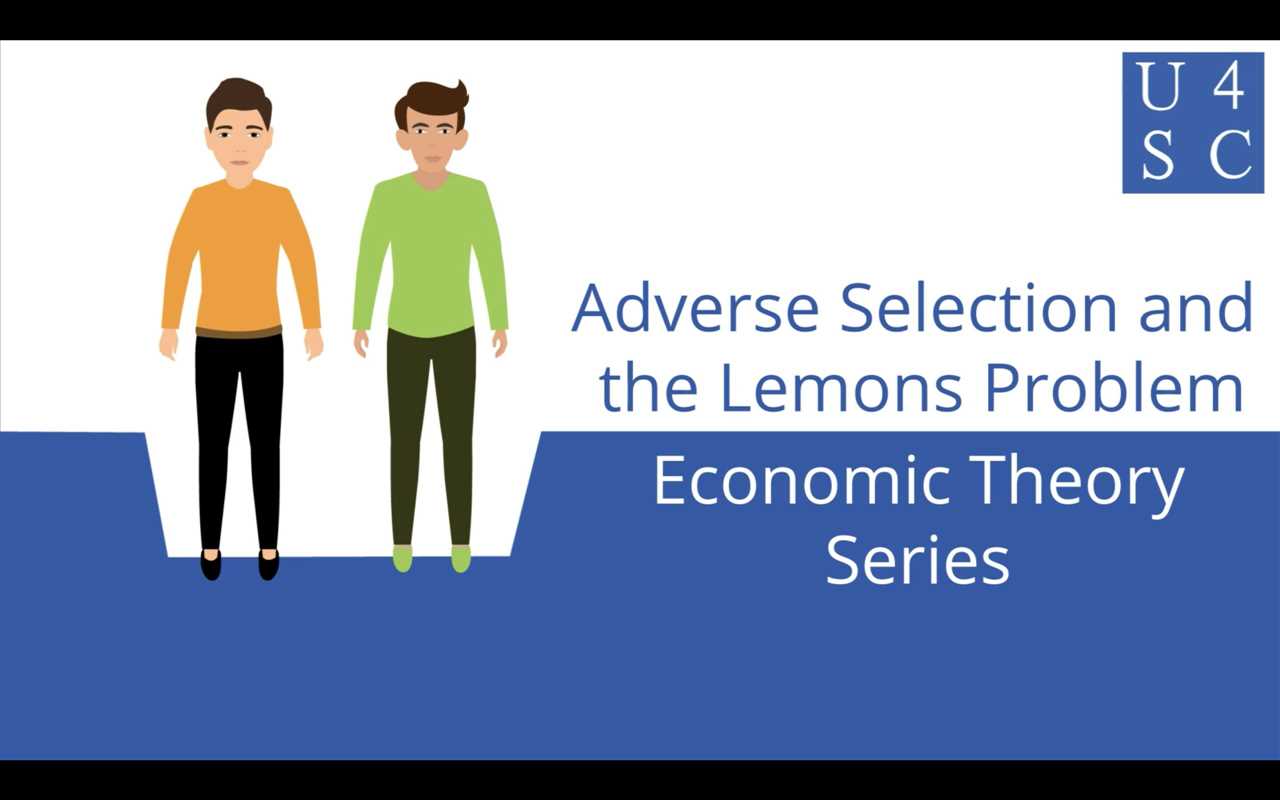Definition of Adverse Selection in Economics

Adverse selection is a concept in economics that refers to a situation where one party in a transaction has more information than the other party, which leads to an imbalance of information and potentially negative outcomes. It occurs when individuals or firms with hidden characteristics or information that is not known to the other party are more likely to participate in a transaction.
In simple terms, adverse selection occurs when the buyer or the seller has more information about the quality of a product or service than the other party. This information asymmetry can result in the selection of lower quality products or services, leading to market failure and inefficiency.
To mitigate adverse selection, various mechanisms can be employed. One common solution is the use of signaling, where the party with more information takes actions to reveal their true quality. For example, a seller of used cars may provide a detailed vehicle history report to potential buyers to signal that the car is in good condition.
Another mechanism is the use of screening, where the party with less information takes actions to gather more information about the other party’s quality. In the context of insurance, for example, insurance companies may ask potential policyholders to undergo medical examinations to gather information about their health and reduce the risk of adverse selection.
Mechanisms and Examples of Adverse Selection

Adverse selection is a phenomenon that occurs when one party in a transaction has more information than the other party, leading to an imbalance of knowledge and potentially negative consequences. In economics, adverse selection is often associated with the market for insurance and the used car market, where the quality of the product or the risk of the insured party is uncertain.
Adverse selection can also occur through “hidden actions,” where one party has private information about their actions that affect the transaction. For example, in the market for insurance, the insured party may engage in riskier behavior knowing that they are covered, leading to higher claims and increased premiums for everyone in the market.
There are numerous examples of adverse selection in real-world markets. In the healthcare industry, adverse selection can occur when individuals with higher healthcare needs are more likely to purchase insurance, leading to higher costs for insurers and potentially higher premiums for everyone. In the labor market, adverse selection can occur when individuals with higher levels of education or experience are more likely to apply for higher-paying jobs, leading to a mismatch between the skills required and the skills possessed by the workforce.

Emily Bibb simplifies finance through bestselling books and articles, bridging complex concepts for everyday understanding. Engaging audiences via social media, she shares insights for financial success. Active in seminars and philanthropy, Bibb aims to create a more financially informed society, driven by her passion for empowering others.
